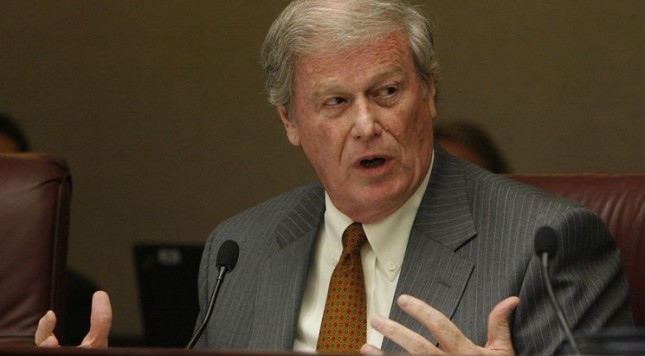Earlier in the week FSU published a statement by John Thrasher detailing the numerous problems with a recent documentary entitled The Hunting Ground. The documentary focuses on sexual assault on college campuses and includes an interview with Jameis Winston’s accuser, who still claims she’s fairly certain that her drink was drugged even after toxicology tests disproved this claim.
A few select parts of his statement seem to be the most noteworthy. Chiefly, the claim that the filmmakers did not give FSU ample chance to respond to an inquiry about the case. Thrasher states:
“The first time the University was contacted by the filmmakers was December 18th – nearly three months after they had submitted the film to the Sundance Film Festival and it was scheduled for its artistic premiere. They sent a generic email asking for comment about sexual assault but failed to disclose that FSU would be a target of criticism and withheld the fact that Ms. (Erica) Kinsman would be going public with her version of the story.”
The film’s claim in the credits that FSU officials declined interviews. If Thrasher’s statement is true and they were not contacted in a prompt manner, it becomes a question of credibility for the film. It is obviously a one-sided depiction, though that doesn’t excuse misleading viewers about the various school’s responses. The filmmakers are not under any mandated obligation to fully publish a response, but it would go a long way in establishing their integrity.
“Our efforts included arranging an independent investigation by a former Florida Supreme Court justice. He reviewed more than 1,000 pages of documents and took testimony from Mr. Winston, Ms. Kinsman and 10 witnesses before ruling there was not a preponderance of evidence to support her allegations. This was not mentioned in the film, although it received ample press coverage.”
It is important to note that perhaps the filmmakers aren’t totally responsible for this omission. The decision in the code of conduct hearing didn’t come out until late December — after the film had supposedly been submitted to the Sundance Film Festival. However, there are still questions.
The hearing was known about since October of last year, which is certainly enough time for them to at least include a mention of it in their film. Did they sincerely not know about it? Or did they purposefully omit a hearing which would potentially damage their interviewee’s credibility?
The rest of the letter is Thrasher stating that they lodged a complaint against the film’s production company and reinforcing FSU’s policy regarding allegations of sexual assault. It is a succinct response that is supported by Thrasher’s other statements about the entirety of the case. He is certainly gaining the favor of a large part of the student body with his resilience in fighting unsubstantiated or misleading claims regarding the university.
In the era of click-bait and hot takes, it is easy to get swept up into story lines or narratives that provide distorted views of a situation. Hence why it is necessary to listen to both sides and make sure their claims stand to reason.




















